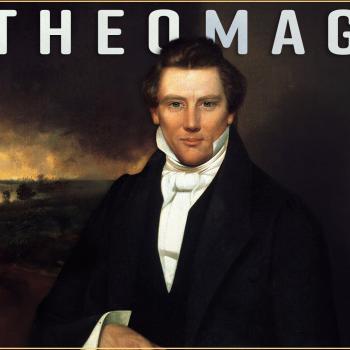
Washing rites—or rituals of purification—are found in most religious traditions, and Judaism is no exception. From Christian baptism to Muslim wudu, and from Hindu immersion in the Ganges to Shinto ablution outside a shrine, most religions use water as a cleansing agent in ceremonies and sacraments. For most, water is (among other things) perceived as a symbol of purification, purging, or dedication to the divine.
As it relates to the Jewish tradition, there are several components of “baptism” (or the mikveh) that are important to understand. While there are predictable parallels with Christian baptism (because baptisms in Christianity were a form of the Jewish mikveh), Jewish “ritual immersion baths” also have a few distinct features which set them apart from Christianity’s most important sacrament.
1. Is Jewish Baptism Performed by Affusion or Immersion?
The term baptism (baptizo in Greek) means literally to “immerse,” “submerge,” or “dip.” The word is in common use at least by the second century BCE, when the Greek physician and poet, Nicander, created a recipe for making pickles—yes, pickles! Nicander, indicated that the cucumber would need to be “baptized into boiling water” and then “baptized” again in a “vinegar solution.” Of course, Nicander was making no direct reference to the Christian sacrament of baptism, but he was suggesting one must completely “submerge” (baptizo) the pickle in liquid, much like how the convert is traditionally “immersed” or “submerged” in the waters of baptism. The Hebrew equivalent to the Greek baptizo is mikvah, and is the word today is used to refer to a ritual “immersion bath” used for a variety of purposes in Judaism, including being part of a conversion rite. Thus, Jews “baptize” by immersion (tevilah)—both their converts and their kosher pickles!
2. Did the Jews Borrow Baptism from Christianity?
The actual practice of baptism as a conversion rite (or sacrament) is often assumed to have begun with John the Baptist (in New Testament times). However, there is no question that baptism was present in ancient Judaism; and long before the first century—when John and Jesus would start performing the rite. Jews are more inclined to use the word mikvah rather than the term baptize when referring to their “ritual immersion bath,” nonetheless, a surprising number of Jewish publications employ the word baptism, particularly when speaking to a non-Jewish audience.
Though the term mikvah appears (in its various forms) nearly a dozen times in the Hebrew Bible, it is not clearly used in reference to baptism in any of those passages. However, as evidence of the use of “ritual immersion baths” for converts in the pre-Christian era, note that Jesus and John the Baptizer are heavily criticized by the first century Jewish leadership for their various teachings and practices. However, these same leaders never once criticize the prophet or his Lord for performing some new “rite” or “sacrament.” Indeed, the reason for that lack of criticism of baptism (in the New Testament) is because early Christian “baptisms” were simply seen as mikvote and, thus, a common Jewish practice.
3. What is the Purpose of Baptism in Judaism?
While the mikvah (or ritual “immersion bath”) was used anciently for many things, among its uses today are [1] to cleanse a woman at the conclusion of her menstrual cycle, and [2] for Orthodox women and men (on the eve of Yom Kippur or the “Day of Atonement”) to approach God in a state of physical cleanliness. Mikvote are also used today—and presumably in antiquity—[3] for conversions as well. Though not all “branches” or “denominations” engage in the same conversion rites—and some reject conversions all together—nonetheless, where mikvote are used as part of conversions, they have a number of symbolic meanings, commonly expressed in the various denominations of Judaism. For example, for many Jews, mikvote are a symbol of entrance into a community—which is exactly what conversion is at its roots. Also, the mikvah or Jewish “baptism” marks a transition from one’s old life to a newness of life. The convert is now a new person with a new faith-tradition. Also, many see the mikveh as representing the convert’s desire to repent and gain forgiveness of past sins or former infractions of God’s law and God’s will for their lives. In essence, for many Jews, the “ritual bath” of conversion has purposes akin to Christian baptism.
4. Who Must Be Baptized in Judaism?
While Christian denominations that believe baptism is sacramental traditionally expect both converts and those born in the faith to participate in the rite, Judaism has a different view on who “needs” baptism. Though there are many Jewish denominations and, therefore, many takes on how to “convert,” tradition holds that only converts need to be “baptized.” So, in Orthodox Jewish thinking, a child born to a Jewish mother is a Jew, simply by virtue of his or her material parentage. However, in antiquity and in Orthodox denominations today, a child born to a Jewish father and non-Jewish mother would be considered to not be Jewish, in spite of the fact that the father is Jewish. Reform Jews, on the other hand, will typically accept that a child born to either a Jewish father or Jewish mother is, by birth, Jewish. Thus, if one is “Jewish by birth/parentage,” one need not be baptized for membership in the Jewish community. However, those who are not deemed “Jewish” by birth don’t necessarily need a “baptism” (or mikveh) for salvation, but they do need one if they officially wish to join the Jewish faith.
5. What is Required of a Convert in Order to be Baptized?
Expectations of converts vary from denomination to denomination within Judaism. What a Haredi or Modern Orthodox rabbi would expect (in understanding and commitment) from a convert might be significantly more than what a Reform Rabbi would demand. However, the prevailing view seems to be that the potential convert spends sufficient time studying Judaism—its law, sacred texts, and liturgical forms—prior to conversion to evidence that he or she actually understands what is being embraced and what will be expected of the convert. So, for example, some congregations (particularly in Orthodox denominations) will put together a “court” of three (or more) rabbis (known as a beit din) to “quiz” the potential convert, seeking to know what he or she understands on the most crucial components of the faith. Much like those who seek to become one of Jehovah’s Witnesses (spending a year or two in study and preparation prior to being baptized), those seeking to become Jews will certainly be expected to participate in a “deep dive” into the faith prior to being admitted through circumcision and immersion (for men) or just immersion (for women).
Because being Jewish is about one’s spiritual identity and even one’s entire lifestyle, those considering conversion are typically encouraged to engage in deep and genuine self-introspection to ascertain exactly why they wish to convert, and to make certain they are fully committed to this new life and way of being. In the most observant denominations, converts will be asked if they are committed to kabbalat ol ha-mitzvot—meaning the “yoke of the commandments.” In essence, they are being asked how committed they are to live the life of a “good Jew” which, in the Orthodox denominations, can be a demanding and even sacrifice-filled lifestyle. While this same question is typically asked in the less observant denominations, the expectations and commitment are much less because theologically progressive Jews have fewer mitzvot (or commandments) that they are expected to live.
6. Do Jews Proselytize?
Prior to 70 CE, when Herod’s Temple (in Jerusalem) was destroyed and the Jews of that region were displaced, converts to Judaism were actively sought out. Thus, conversion was commonplace. However, once most Jews were living in the diaspora, the ability and even motivation to proselytize quickly died out. Adding to that, in the centuries that would follow, many Jews were put off by aggressive Christian proselyting and, thus, turned away from the practice—considering it distasteful. Since the Jewish Talmud states that “the righteous of all peoples have a share in the World to Come,” some Jews today feel like conversion to Judaism is a “non-issue.” If you accept the seven laws God gave to Noah, regardless of your religious tradition, a place in heaven will be available to you.
Of the various denominations of Judaism, Haredi (or “Ultra-Orthodox”) and Modern Orthodox denominations are the least inclined to accept converts. So, for example, Orthodox Jews would not traditionally allow someone to convert simply because they wish to marry a Jew. However, more theologically progressive denominations often accept conversion simply for the sake of marriage. While this is likely more cultural than institutional, many in the Haredi denominations have little interest in interacting with, let alone converting, those from “outside” of the faith. Thus, conversions in the most observant denominations are often “discouraged,” and proselyting uncommon.
7. If Christians Take Upon Themselves the Name of Jesus, What Name do Jews Receive at Baptism?
Once the convert has immersed (tevilah) himself or herself in the mikvah, the person is now “officially” a Jew. As part of the rite, the convert takes upon himself or herself a new name—a Hebrew name, symbolic of their new Jewish identity. That name could be the Hebrew equivalent of their given name (e.g., Saul becomes Shlomo), or the new name could be that of someone the convert wishes to emulate (e.g., a biblical figure or a living person they greatly look up to).
Traditionally, all converts are understood to be ben Avrahm (a “son of Abraham”) or bat Sarah (a “daughter of Sarah”)—and part of am Yisrael (or “the people of Israel”). As they move forward in their new life and new community, the faithfulness of Abraham and Sarah are models of how they should live, filled with faith, willing to sacrifice, and dedicated to God in all aspects of their new life, as part of God’s “chosen people.”
8/5/2024 7:44:03 PM





